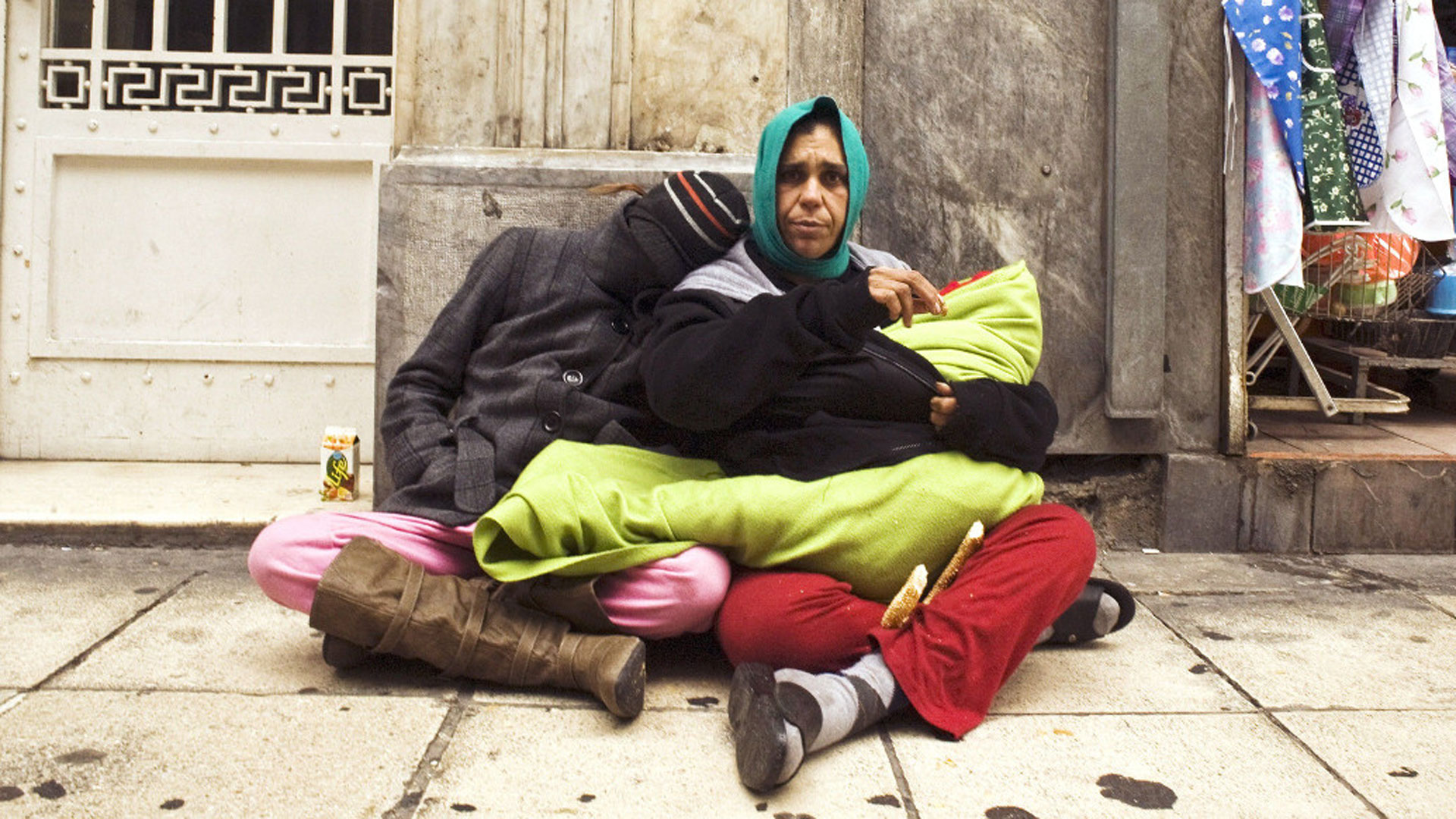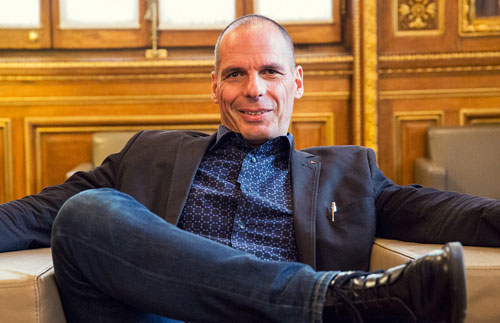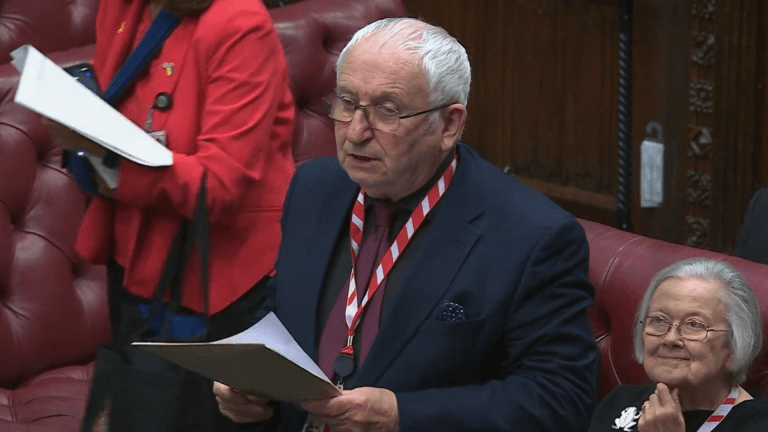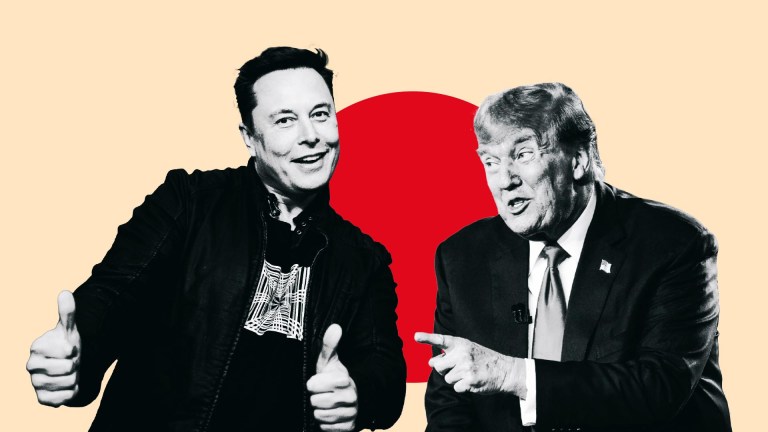Negotiating with the European Commission, the European Central Bank and the IMF, and his bid to implement the ‘bad bank’ model set up in Ireland and Spain
“Let me share a few pointers from negotiating with this troika of bandits. The ‘bad bank’ proposal would take the deeply non-performing debt loans from the books of the banks to allow them to clean up their asset books and potentially lend again. At the moment, the big banks do not lend to anyone, as 50 per cent of their asset books is non-performing. Our argument was that this ‘bad bank’ and the public would take a hit to clean up the private banking sector so that it could start lending again, and prevent foreclosures on families in order to prevent a worsening of the humanitarian crisis of homelessness. There was absolutely no interest in even listening to these proposals.”
The European Union
“Europeans are turning against the European Union because of its hypocrisy. When it suits the established order to interfere, they interfere in a way that is akin to invasion. Last year they shut down our banking system to impose cuts upon the Greek government. In 1967 we had a coup d’état using tanks, last year we had a coup d’état using banks. There can be no greater interference in the life of a country than to close down its banks. And at other times, when you have clearly misanthropic government interventions which violate the rulebook of the European Union, as we do today in Hungary, in Poland, in Romania, sadly interference is not an important principle. Any union that disrespects consistency to such an extent eventually turns its people against it. And I say this as someone who does not want to see the European Union disintegrated but who feels that it is increasingly difficult to convince people out there that we should not allow it to perish.”
Brexit
“I campaign extensively for a radical in vote. The worst enemies of the Remain campaign are people like David Cameron and Tony Blair, who are campaigning on our side. With friends like that, why do you need Boris Johnson? I try to take a nuanced stance on this. I think it’s important to move away from Project Fear from either side. I don’t think that Brexit means there’s going to be anything tremendous that happens in the next day or the next two weeks. Those projections of the treasury that Britain is going to lose a third of its income, that Armageddon will hit, that house prices will go through the floor – none of it is going to happen. My reasons why Britain should stay in are not Cameron’s reasons. Similarly, the Brexit campaign has a very good argument regarding democratic sovereignty, which has been ceded to a large extent to an undemocratic – anti-democratic, I should say – cabal of bureaucrats and institutions.
That economic crisis, as it gets worse in Europe, is going to suck Britain in to a new depression
“So you may say, why am I against Brexit? The reasons are two. First one is – you cannot leave, even if you vote to leave. You are stuck in the single market. The single market is not a free trade area – there are common industry standards, every service has to be policed according to regulations made in Brussels, environmental protection standards, legal market standards – all from Brussels. The same lack of sovereignty will continue when it comes to writing the rulebook for a great variety of economic and social activities. So why do you want to get out, if you can’t get out? By getting out, you are ceding these rules to an alien force in Brussels, in which you are not even participating. The second reason is that Brexit will speed up the political process of Europe’s disintegration. And that, of course, is going to make the economic crisis worse in Europe. That economic crisis, as it gets worse in Europe, is going to suck Britain in to a new depression. Even if you have left, that will happen.
“So, in this context, there are no great gains – and there are large costs for a Europe that will be nasty, brutish, and it will push the United Kingdom into developments that you don’t want. My message is in, and against. We stay in and we fight against the establishment. It’s the only chance we have.”
On being a heart-throb…
“You don’t expect me to comment on this?”
“The handsome Mr Varoufakis” was a commonly used phrase
“It was a surprise. But also an unpleasant surprise because every time this kind of lifestyle discussion came up, I knew that the issues were not being discussed. It was an attempt to trivialise and to shift the emphasis from the particular proposals, the practical proposals for solving problems.”
Yanis Varoufakis was speaking at the recent International Network of Street Papers summit in Athens (see below)
Up from the street: A global summit on homelessness
The summit offers street papers across the world the chance to share ideas, expertise and experiences
From across the globe they came – from Argentina to Australia – to Athens last week, as street papers of the world united for their annual summit. In a year when the world feels turbulent and unpredictable, it was fitting that the 20th conference of the International Network of Street Papers took place in Greece: cradle of civilisation, mother of democracy, and a nation struggling from recession and political vicissitude – and now carrying the additional weight of thousands of refugees fleeing war in the Middle East. As the conference’s keynote speaker, Yanis Varoufakis, noted, there are many lessons to be learned at a gathering such as this.
Hosted by Greek street paper Shedia, among the debates on homelessness, poverty and the sharing of ideas, guests enjoyed a unique tour of Athens, guided by a Shedia vendor, and visited Eleonas refugee camp. The three-day summit began with former Greek finance minister Varoufakis addressing 120 delegates from 59 street papers, followed by Peruvian-American entrepreneur Cynthia Hellen and veteran Greek journalist Nicholas Voulelis, among other speakers. The summit offers street papers across the world the chance to share ideas, expertise and experiences, and has been the backdrop of many innovations, including the Homeless World Cup, which started after a meeting at the 2001 Cape Town conference.
Shedia was set up in Athens in 2013 at the height of the financial crisis, and follows The Big Issue model. Shedia, which means ‘raft’ in Greek, has more than 200 vendors selling in Athens and Thessaloniki, Greece’s second largest city, with a waiting list of more than 50 people keen to start selling the magazine. “Homelessness was always a word in the Greek dictionary but it was never a reality in this part of the world,” explained Shedia founder and editor, Christos Alefantis. “Over the last six years, this has changed. While there is no official count to the number of homeless people in Greece, a stroll in downtown Athens is a telling reminder of the harsh reality people are trying to adjust to.”










